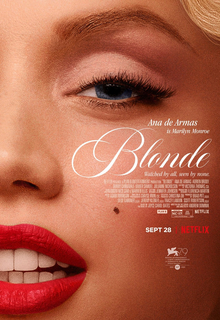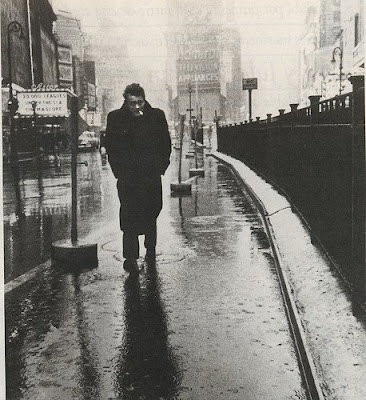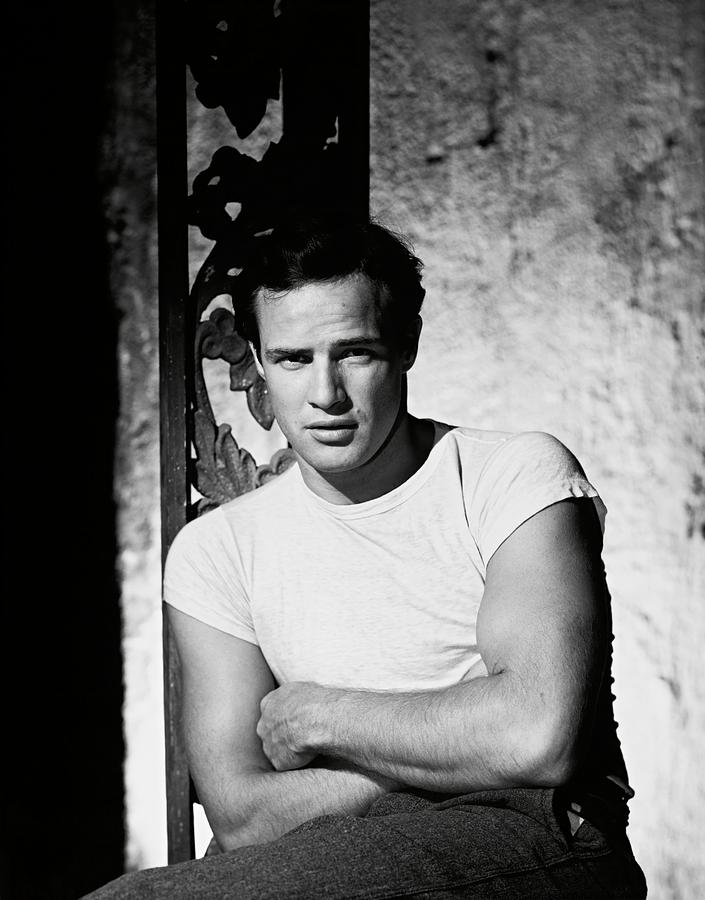
This is a divisive movie, but only because so many people have invested so much time and energy in thinking, reading, watching, and staring at Marilyn Monroe (Norma Jean Mortensen), including, but not limited to, this filmmaker and the writer who said she thought she was going to write a small novella but ended up writing a book that was so long it had to be surgically edited. But MM, the creation, is, arguably, the most famous star that has ever existed. They still sell her images in Times Square, alongside James Dean and maybe Marlon Brando. But those images, of course, are 50 to 60 years old, as is hers. They don’t sell images of Evelyn Nesbit, or even some of Marilyn’s contemporaries, like Jane Russell.


And why did she become an icon? I think maybe that is at the very heart of this adaptation, because I’ve been thinking about it all day. The man next to me felt the need to share his opinion after the nearly 3 hour movie was over, and after he had stayed through all the credits, “Well that was an ordeal.” I don’t know if he thought I’d feel the same — usually people who make unasked for comments like that do think you’ll agree with them — or if he was an idiot. Perhaps he understood how horrific this fictional life story is — the horrors of what we do to each other, told through the story of a woman who was molded in the shape of man’s lust, beaten because of man’s lust, impregnated and aborted because of men’s lust. In any case, he came to see the same movie I did, about a woman whose been dead since 1962 (60 years last August if anyone’s counting.) Since she died at the age of 36, she could actually be still alive if she had the longevity of former Queen Elizabeth.
I think the “Why” of the matter, for me anyway, is in Joyce Carol Oates’s title. Blonde was not her natural hair color. But as most women know, who have to live under the male gaze, especially if they’re looking for a mate, and like one of Marilyn’s titles, “Gentlemen Prefer Blondes,” long flowing blonde hair attracts more men than, say, a brunette pixie cut. The word “blonde” represents everything that she wasn’t. And throughout this movie, and I presume the book, Norma Jean keeps trying to explain to people that she isn’t Marilyn Monroe. That Marilyn Monroe is an invention of the studios and the men that ran them. I can’t remember which studio president said, “Movies are about horses and tits,” but when she first walks into “Z’s” office (a shorthand way of talking about Zanuck), she stares around at all the mounted heads of wild animals and I can’t help thinking that she knows, she knows, she’s going to become one of those mounted stuffed heads. She reads, briefly, a scene she has just been given, and “Z” comes around from behind, pushes her to the floor and fucks her from behind. That’s the moment she becomes Marilyn Monroe. I still don’t know if I’ve answered the “why” question. Why we are so fascinated by this tragic life.
The movie is full of intrusive camera angles, some from inside her vagina, but it makes sense in the scheme of all things, because she was nothing but the same character as the genetically modified woman Somni-451 in Cloud Atlas — she existed to be used. But to get back to the why question of why we are we so interested in this person, I would suggest that we aren’t, actually. We want to see the “real” Marilyn Monroe, who became so famous and iconic that her image will still be sold in Times Square a hundred years from now, long after James Dean, Marlon Brando and whoever comes and goes between now and then. But we can’t, because Marilyn Monroe was a construct, like Jesus on the cross, (now more than 2000 years and still depicted on posters and digital art).
To the actors: They are all brilliant and must be given props: Julianne Nicholson (OMG), Bobby Cannavalle, Adrien Brody, Xavier Samuels, Evan Williams, Toby Huss, and also Lily Fisher who played the little girl Norma Jean at the beginning of the movie.
But one more thing, Ana De Armas gives such an amazing performance that you actually forget, like Heath Ledger in Brokeback Mountain, that she is acting. The criticism that she still had a Cuban accent is invalid. I never once thought about her being Cuban and I didn’t hear it. And also, the fact that MM was a construction and an artifice, like Barbie, should support the notion that if Ana De Armas let any of her Cuban accent through, that would be okay. Because it, MM, was a concoction, like a cake, that we keep consuming.
Five stars.
